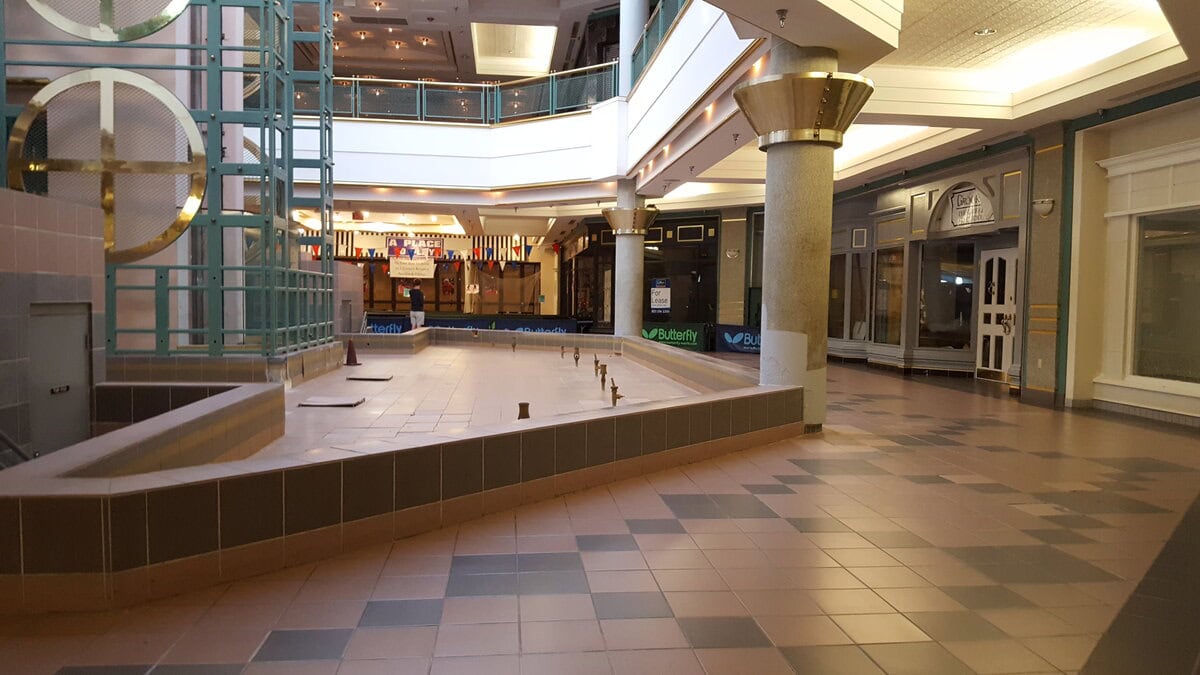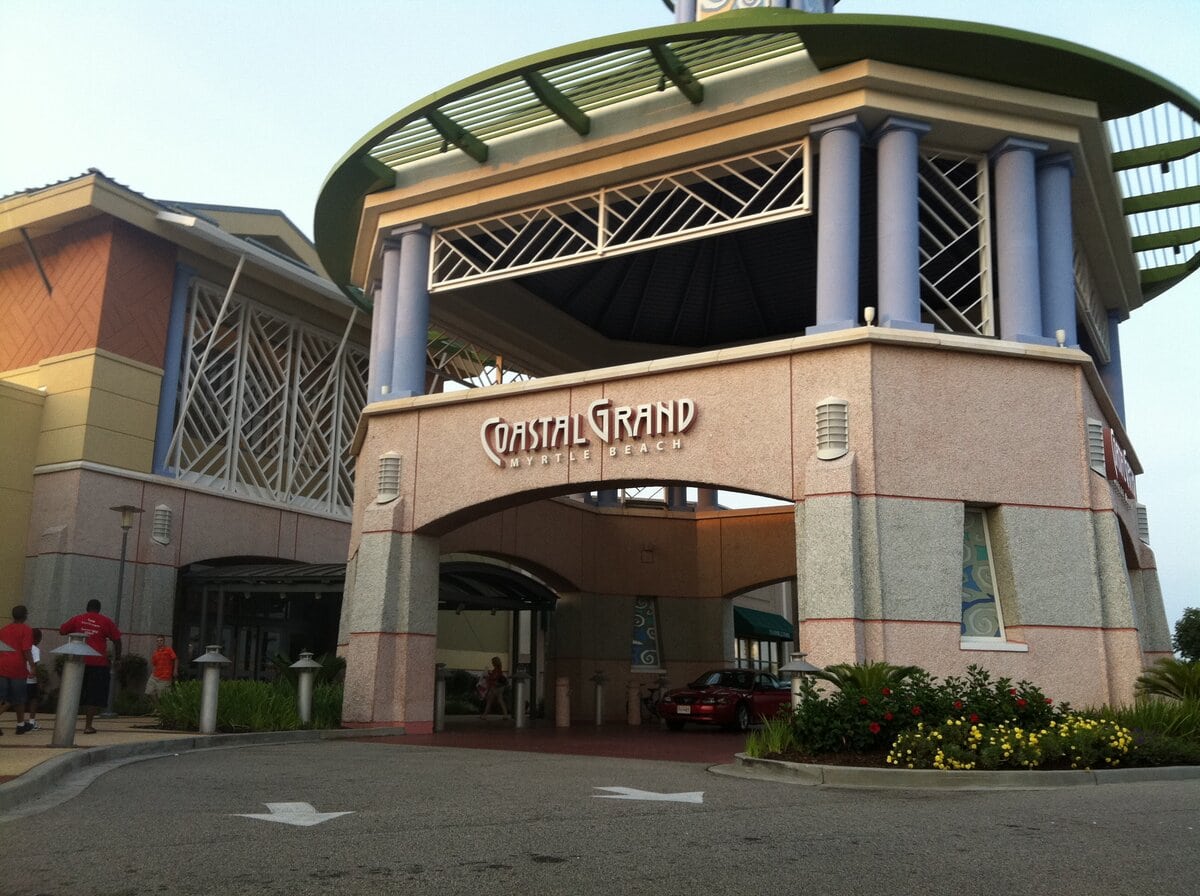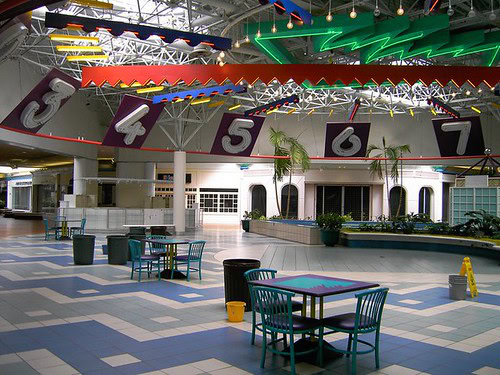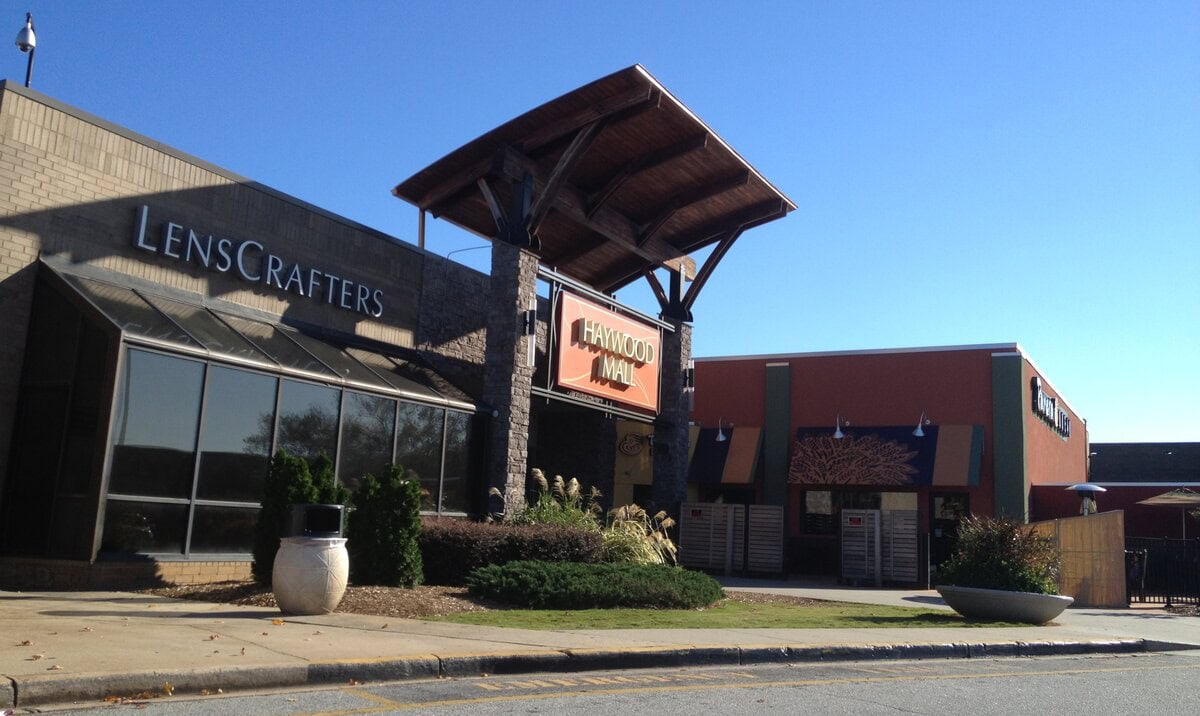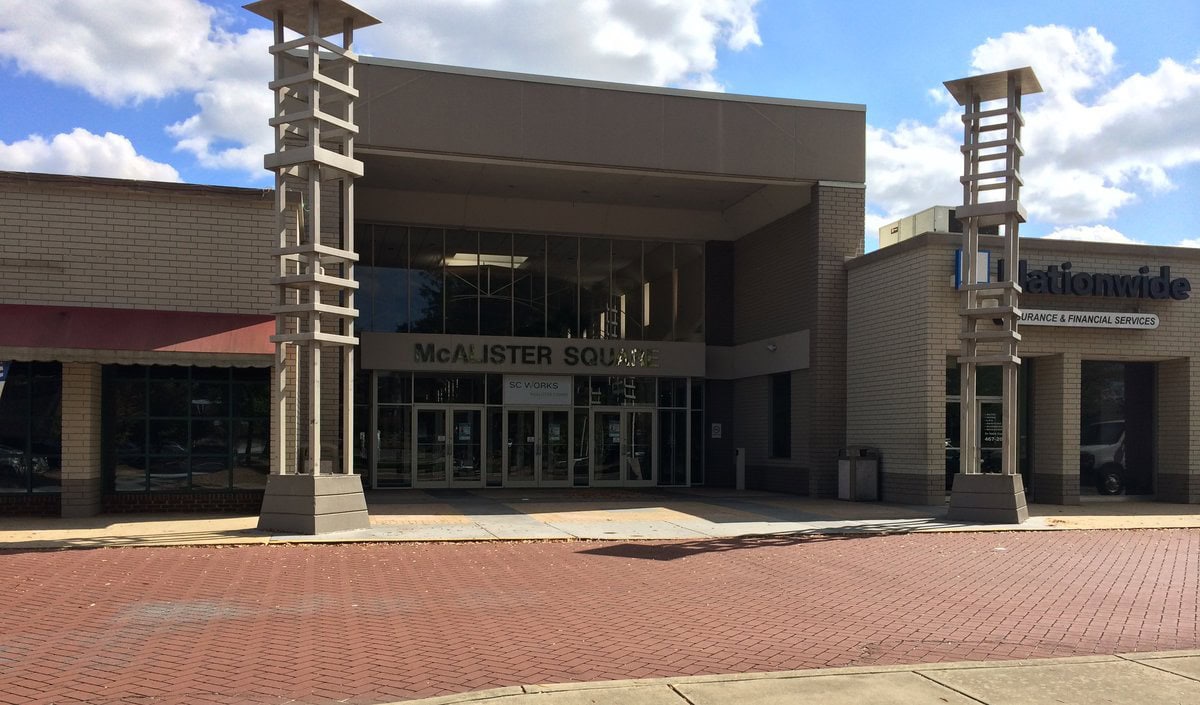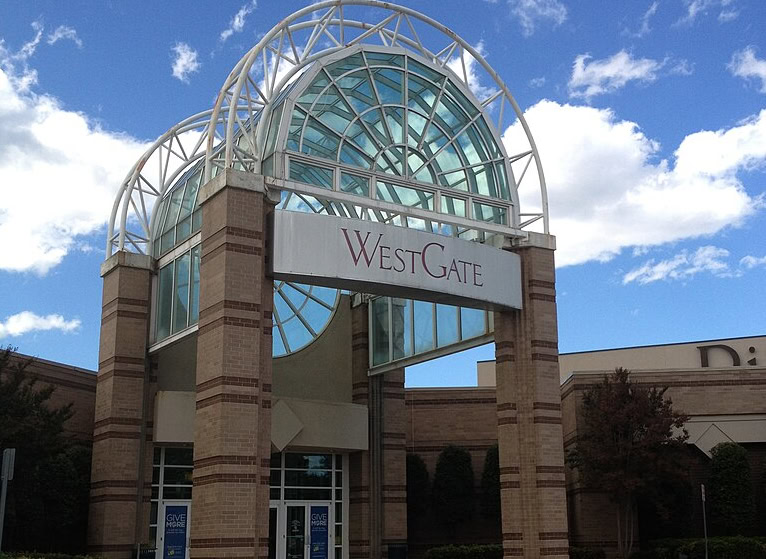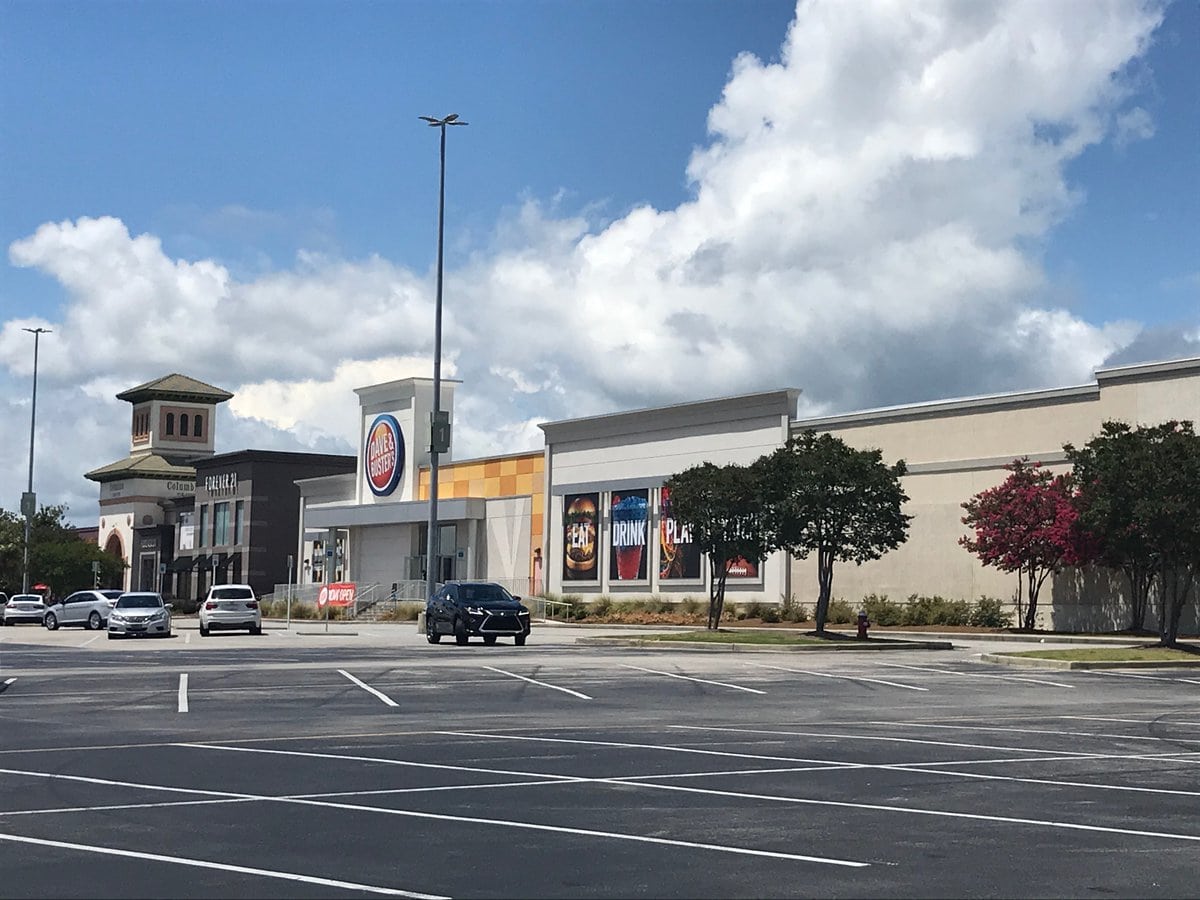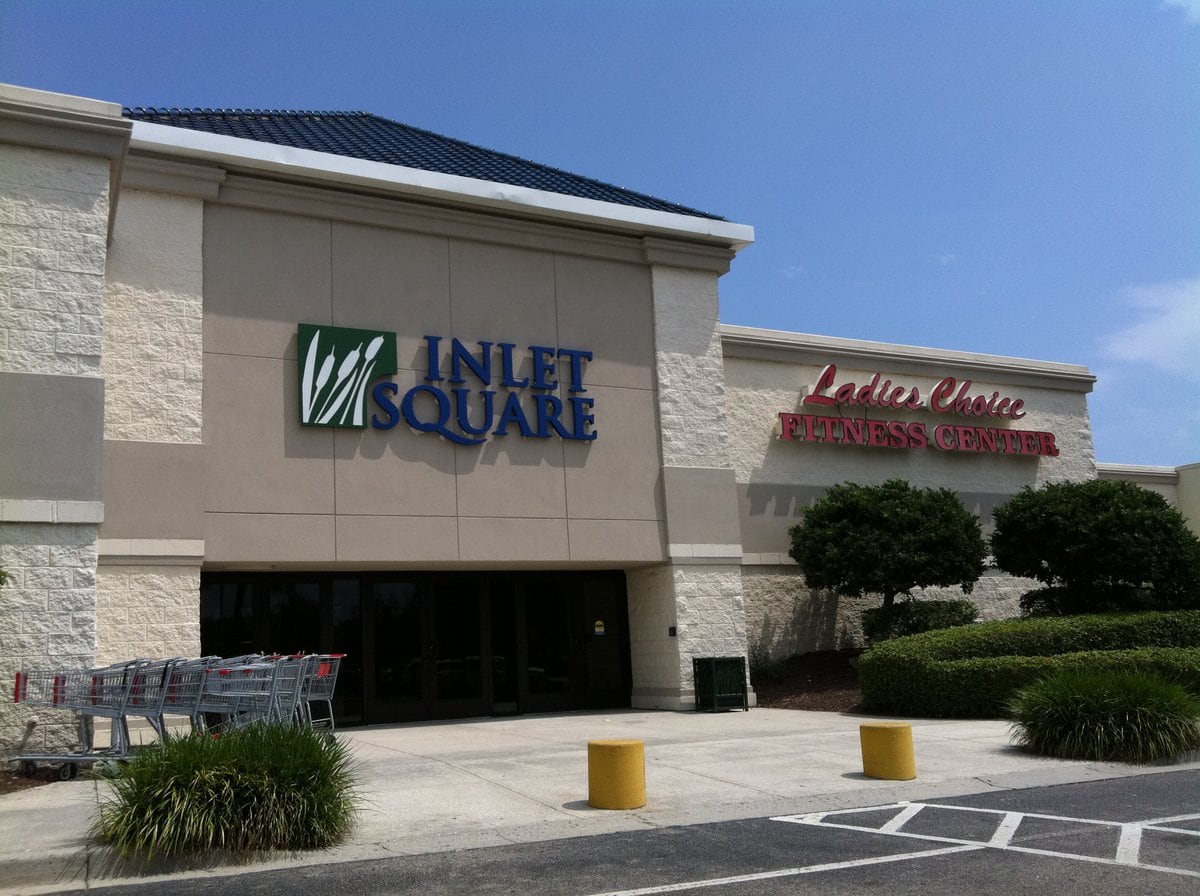Where the Roof Was Sky
Richland Mall was widely described as Columbia’s first. Not the biggest mall in South Carolina, not the flashiest. But the first.
And when you stood in the middle of it, on the concrete concourse, looking up, there was no ceiling. Just sky, boxed in by flat roofs and metal trim.
Richland Mall opened on November 2, 1961, with twenty-seven stores and no walls between them.
J.B. White held the anchor spot. Winn-Dixie stood in for groceries. Woolworth offered soda fountains and plastic bins.
The walkways were open-air, with overhangs for shade and no air-conditioning in sight.
People parked their cars just feet from the entrance and stepped directly into daylight.
If you asked anyone around Forest Acres, at least for the first couple of decades, where they went to shop, or just to be around other people, they might have pointed here before saying anything else.
Retail Beginnings and Lease-Line Logic (1961–1987)
What stood out wasn’t the design. It was how little it tried to impress you. A straight shot of storefronts, a department store at the heart, and everything else lined up like it knew its place.
No elevators. No atriums. Just names on glass: Eckerd, Woolworth, J.B. White, Winn-Dixie.
And it worked. You could drive in, get what you needed, shoes, groceries, aspirin, maybe a movie if you had the time, and be out again by noon.
The theater sat slightly off the main lot, never fully connected, but near enough that it still counted as part of the stop.
But habits changed. By the 1980s, other malls had gone fully enclosed. Dutch Square pulled shoppers in with climate control and longer hours.
Columbia Mall had parking garages and escalators. Richland stayed as it was. Then in 1987, L.J. Hooker bought the property and cleared the leases.
On December 23, Winn-Dixie closed. The rest emptied out quietly. J.B. White stayed, waiting in the middle of a construction site that hadn’t started yet.
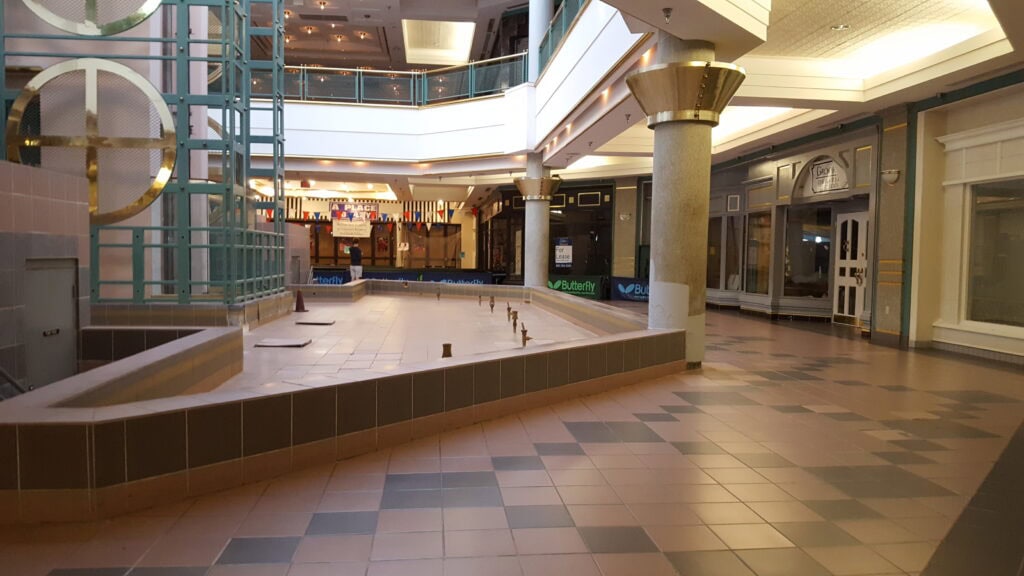
Transformation and Expansion (1988–1996)
In 1988, Richland Mall underwent a major transformation and was renamed Richland Fashion Mall. The property was redeveloped in two phases, introducing a fully enclosed format that modernized the mall’s layout.
The first major anchor to open during this period was Bonwit Teller, followed by Parisian in 1989.
Both were upscale department stores that aimed to elevate the mall’s retail offerings and attract a new demographic.
J.B. White remained a central anchor but was expanded to three floors. A new Litchfield 7 theater was added to the top level, increasing the number of entertainment options for shoppers.
The parking structure was redesigned, with a large multi-level garage constructed along the front and a rooftop deck added to maximize space.
Despite these improvements, the mall struggled with occupancy and foot traffic. Bonwit Teller closed in 1990, only two years after opening. Its departure was a major setback, compounded by the bankruptcy of developer L.J. Hooker.
Dillard’s took over the former Bonwit Teller space in 1993, but the mall remained underutilized and was often described as underwhelming by visitors and tenants.
Rebranding and Decline (1996–1999)
By 1996, the mall attempted a rebrand, removing “Fashion” from its name and returning to “Richland Mall.” A new entrance was constructed to reflect this simplified identity.
The rebranding also coincided with the opening of a Barnes & Noble bookstore in 1997. The store was located near the mall’s main entrance and featured a separate exterior entrance for convenience.
TGI Fridays, a long-standing tenant, relocated to a more prominent position near the new entryway to align with the bookstore’s foot traffic.
In 1998, J.B. White was converted to Belk after a corporate acquisition. The transition was smooth and mostly involved rebranding and signage updates.
The original food court, known for its aviation-themed decor, was closed in 1999 and repurposed into office space. A smaller food court was opened near Parisian, but it never achieved the same popularity.
Throughout this period, the mall continued to lose tenants and struggled to retain consumer interest, foreshadowing deeper challenges to come.
Ownership Changes and Redevelopment Attempts (2000s)
The early 2000s marked a period of uncertainty for Richland Mall. Dillard’s closed its store in 2003, leaving another large anchor space vacant.
Over the next several years, the former Dillard’s space was used by various short-term tenants, including a furniture outlet called Blacklion, a general retail store known simply as “The Department Store,” and, briefly, a ping-pong club.
In 2005, Peerless Development Group purchased the mall and announced plans for a major renovation.
They also rebranded the mall as Midtown at Forest Acres in an attempt to signal a new direction. However, the redevelopment never progressed beyond the planning stage.
Peerless defaulted on its loan, and by 2007, the property was back on the market.
Parisian closed in February 2007, removing another legacy anchor. The Columbia Children’s Theatre moved into the mall in 2009, initially occupying the former Express space.
In 2017, it relocated to the lower level in the former Eckerd location. Despite these new tenants, overall activity remained low, and the mall failed to regain momentum.
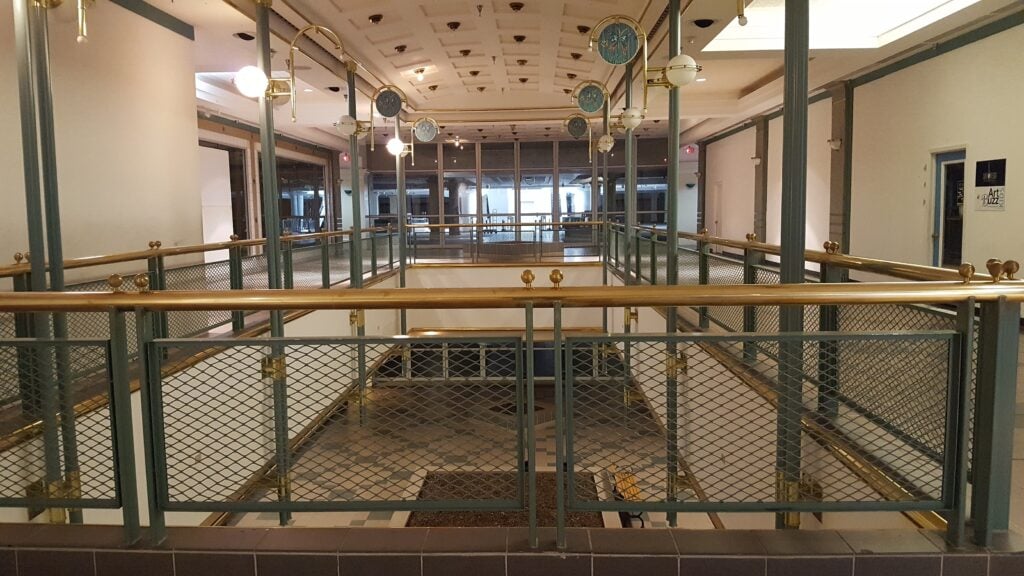
The Final Decade of Operation (2010–2023)
In 2010, the mall changed hands again. Century Capitol Group acquired the property and brought in Kahn Development Company to manage a new revitalization effort.
One of the first changes was restoring the Richland Mall name. This symbolic reversal aimed to reconnect with the mall’s legacy.
New dining options were introduced over the next few years, including Sadie’s American Cafeteria and later Jackson Family Cafeteria, but both ultimately closed.
The Seafood Academy replaced TGI Fridays in 2013, offering a new culinary option, but it too closed by 2016. Gymboree, a national children’s clothing chain, closed its Richland Mall location in 2018 after two decades of operation.
In 2019, CivvieSupply, a patriotic clothing brand, opened a fulfillment center inside the mall, though it had limited visibility.
The Regal Columbia 7 theater closed in February 2022. On February 1, 2023, Columbia Children’s Theatre also vacated the property.
Belk, the mall’s last full anchor, closed in September 2023 after 25 years. Barnes & Noble, the final national retailer on site, closed on December 31, 2023.
After its closure, the mall stood completely vacant for the first time in over sixty years.
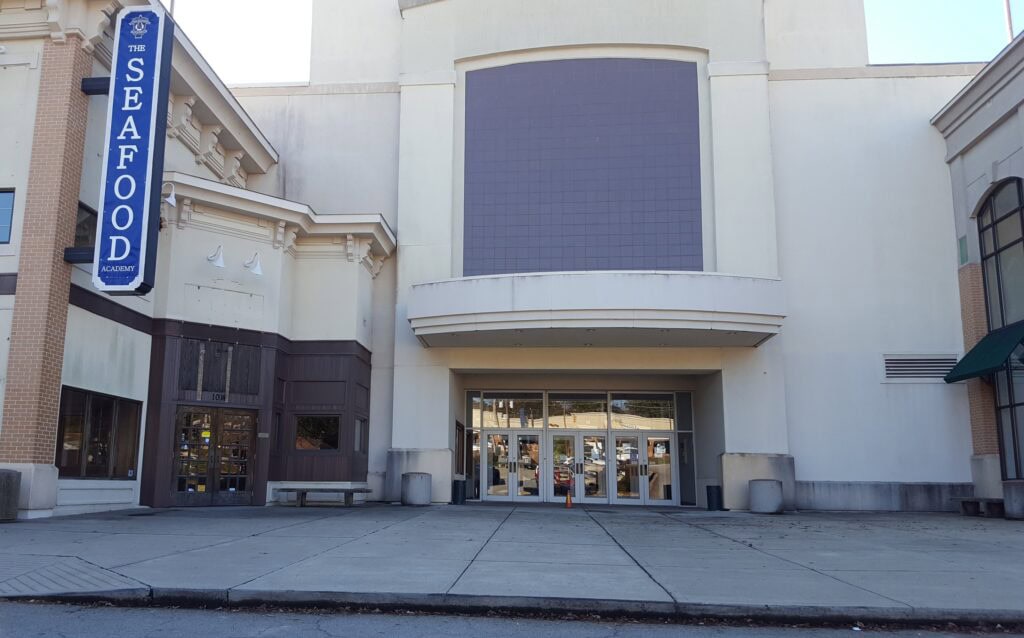
A Clearing Begins
The first part to come down was the shell of the old Barnes & Noble, though no one seemed to mark it.
Demolition crews started just past the loading docks and worked inward, eating away at the concrete one bite at a time. No banners. No ribbon cutting.
Only the hum of machines and a chain-link fence wrapped in mesh catch the dust.
The date was March 20, 2024. Some locals stopped to watch from their cars. Others passed by with a glance or none at all.
A few months later, a time capsule turned up, buried deep under a walkway near the original J.B. White. It wasn’t opened. Instead, it was moved and scheduled for another day: January 20, 2033.
A future story, already boxed and resealed.
By summer, the building had lost most of its shape. On July 10, a fire broke out, nothing major, a flare sparked during metal cutting. No injuries, but work paused briefly. And then resumed.
As of summer 2025, crews had removed most of the former Richland Mall structure. Just concrete pads, stacked pipes, utility stubs, and silence where air conditioning units once roared.
Renderings and Red Dirt
The new plans arrived the way these things usually do, through press releases, digital mockups, and a few aerial renderings released to the public in May 2025.
The centerpiece was a Kroger Marketplace, 120,000 square feet, with a pharmacy, a Starbucks, a gas station, and curbside pickup lanes traced in blue and white lines.
There would also be apartments, somewhere behind the retail, and a six-acre park lined with sidewalks and young trees.
The renderings showed open spaces, walking paths, and benches. Everything neat. Everything flat. A future you could point to but have not yet walked through.
The sequencing was still up for interpretation. The developers said they would begin with apartments, then follow with Kroger, and then let the rest grow from there.
The city mentioned late 2025 for park construction. The hoped-for opening date was sometime in 2027.
🍀

